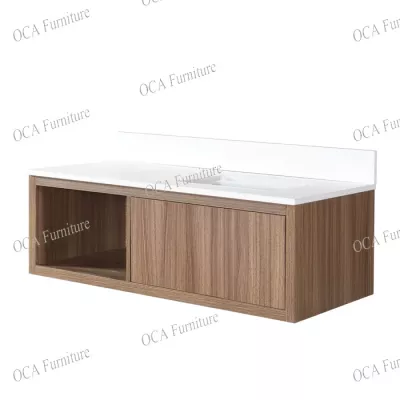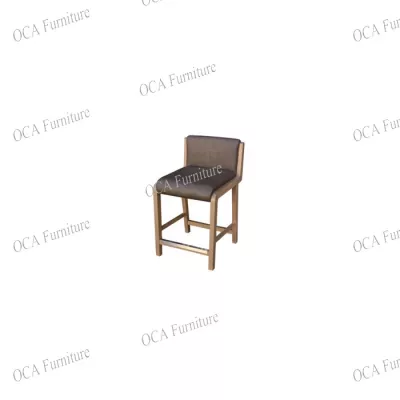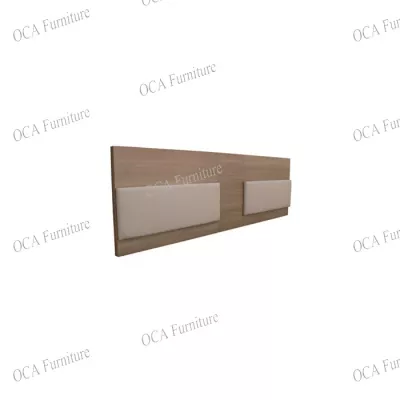The hotel management information system HMIS is an indispensable standard for any hotel to open. Choosing a good hotel management information system is also an indispensable ability for hotel managers. Once a set of software is selected, there will be no chance to replace it with a new one in the next ten or even twenty years. However, in real life, many hotels have taken many detours due to lack of professional guidance when selecting systems or updating systems. The author will give you a brief review.
The most important "pit" in the selection
1. Believe in exaggerated propaganda from sales staff. Under normal circumstances, if the product's skill is around 7 points, sales staff will exaggerate it to 9 points for sales performance. This is also the norm in the industry, and it is not surprising.
2. Blindly pursue big-name products. Under normal circumstances, experts will recommend big-name products. But when experts choose by themselves, they may not only choose big names. Because any big-name product has its shortcomings, it is difficult to find without a very professional perspective. It is politically correct to recommend choosing a big name. Even if you choose the wrong one, the experts do not have to bear any responsibility. Besides, after the fact, it is difficult for you to prove that the big name is wrong. Experts who speak on behalf of "big names" will definitely say that it is your operation problem.
3. Hasty selection process. You know, a two-hour demonstration is unlikely to show the full picture of the product. In the two-hour passionate speech of the salesperson, he can only show you the brightest side of the product. All product bugs will be hidden. However, most users make decisions based on the impression of this demo.
4. There is no documentation. Many users do not have the habit of organizing their own requirements documents, most of which are because they have not undergone such training and cannot write. The discussion between the two parties on the software's functions is only verbal and there is no evidence to check. This is the real reason why users complained that "during the presentation, they can do everything they promised, but now they can't do anything".
"Pit" in the implementation process
1. The parameters are not complete. Before any management software can be put into use, it needs to preset many parameters in the system, such as market code, source code, channel code, price code, room type code, account code, etc. However, most hotels are severely lack of knowledge in this area and cannot give qualified parameters. The personnel sent by Party B will not take the initiative to tell the hotel how to set it up, and set it randomly according to the unqualified parameters given by the hotel. Such a system cannot be easy to use.
2. No working documents. For the formal implementation process, Party B should provide daily work records to Party A’s IT manager for review and record. But in many hotels, if Party A does not request it, Party B will not provide it voluntarily. A few days after the implementation, Party B submitted an acceptance letter for Party A to sign, but Party A did not know what Party B’s engineers did in the past few days.
3. No acceptance criteria. Because there is no requirement document for reference in the early stage, and no daily work report, Party A cannot determine whether the system meets the acceptance conditions. At this time, the user department often still has a lot of problems saying that they have not been solved, and they ask Party A to stay and finish, but they will say that our people's working days are full. If you want to extend the labor, please contact our sales. When contacting the sales, you will be told that if you increase the labor force x thousand yuan per day, you will get the bait.
4. Shortages. A software with seven points of skill is blown into nine points of skill, but the implementation personnel can achieve only five points on site. The reason is that in recent years, software companies cannot find highly qualified installation engineers, coupled with inadequate training and insufficient practice, so there are only three points left for the system to be able to function.
5. To shirk each other. Anything that spans between two subsystems (such as PMS and POS) always prevaricates each other. The engineer of the POS system would only say that I sent the data and I don’t know if the other party received it. The PMS engineer will only say that I have been receiving it, and I don’t know if it was sent. Both parties say they don’t know from which interface the user should view the data. Even when Party B sells two systems in one family, this kind of non-cooperation can happen.
6. Push to after-sales. When an engineer is withdrawn from the site, users often have a big push problem that has not been resolved. If they refuse to spend a lot of money to ask the engineer to stay for a few days, they can only follow the engineer’s warm reminder: It’s okay, if there are any problems after I leave, you You can call our after-sales service number 400XXXXXXX. Even if the hotel is willing to spend money and stay as an engineer for a few more days, it will be of little help to stay for a few days because he does not know how to manage him.
The "pit" in after-sales service
1. Add modules. The after-sales service will tell you politely, "The function you requested is not included in our system module. If you absolutely need this function, you can buy our other XXX module. Do I need to resell it for you?"
2. Upgrading. "Please wait a minute, we have already responded to your question. They are upgrading the software and can update in two weeks. Two weeks later, "Sorry, it will take two more weeks..."
3. Wait for the balance payment. "Because your company did not pay the balance payment, my login number has been blocked by the financial department. I cannot log in to your system and cannot see your problem. I suggest your hotel pay the balance payment as soon as possible so that we can resume normal work."
The actual problems are far more than these. How to avoid it? The author has the following suggestions for reference
1. It is strongly recommended that when purchasing or replacing the system, make great efforts to write requirements documents. According to the five levels of "very necessary", "necessary", "generally necessary", "preferably" and "have", the functions you need are clearly stated in text form. The more detailed the better, don't be too troublesome. If you are afraid of trouble at this time, it will be more troublesome in the future.
2. Lead the presentation, do not follow the other party's rhythm and order during the sales process. Take Party A’s demand list as the main line, and let the other sales demonstrate the functions you want to see one by one. During the viewing process, carefully evaluate the degree of satisfaction of each function, and score on the spot. Finally, the summary score is calculated according to the weight of necessity.
3. Shop around and take into account the big, medium and small brands. Respect big names, but not superstitious big names, but also respect small ones, because he may surprise you. Even if you already have a clear preference in your heart, don't let him think that he is the only option and must have a runner to accompany you.
4. Demonstrate professionalism. Countless experiences have shown that the more professional you are in negotiations, the more your opponent will respect you. If you can't tell your own business process, they will despise you and deceive you in the process of sales and implementation.
5. The signing is rigorous. Generally, the other party will provide you with a format document, which is not easy to change the contract terms, but in order to protect yourself, you must sign the above-mentioned requirements document as an attachment to the contract as a basis for future acceptance.
6. Supervise implementation. It is necessary to have a strong supervision of the implementation process. Implementation engineers are required to fill in on-site work reports every day, and IT managers are responsible for reviewing the daily work progress to avoid discovering that there are a lot of problems that have not been resolved before leaving.
7. Good at communication. Many contradictions are not caused by product flaws. More often, it is caused by poor communication between the two parties, sometimes because one party has a violent personality, leading to verbal conflict or even deadlock, which ultimately affects the smooth implementation of the system.
If the above 7 can be done well, there should be no major problems. In short, pay more work before buying, and worry after buying.







